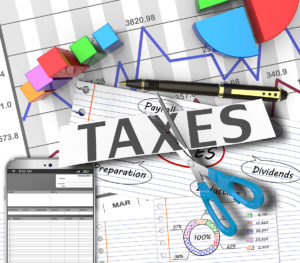
Preparing for tax season is essential, especially for small businesses that may need help sorting their finances and tax options.
As a small business owner, preparing for tax season can be a stressful task. Waiting until the last minute can result in missed opportunities to reduce your tax liability. The key to a smooth and successful tax season is proactive preparation before December 31st. By taking a few essential steps, you can streamline your tax filing process and maximize your financial benefits. Here’s a guide to help you get started.
Organize Your Financial Records
Accurate record-keeping is the foundation of effective tax preparation. Before the year ends, review and organize all financial documents, including income statements, expense reports, receipts, invoices, and bank statements. Use accounting software to categorize transactions and ensure no expenses are overlooked. If you’re working with an accountant or tax advisor, having well-organized records will make their job easier and reduce the chances of errors.
Reconcile Your Accounts
Reconciling your bank and credit card statements ensures that your records match up with your financial accounts. Any discrepancies should be investigated and corrected. This process helps avoid errors that could trigger audits or unnecessary tax liabilities. Reconciliation also allows you to spot any fraudulent activity or unauthorized charges on your business accounts.
Review and Maximize Deductions
Small businesses are eligible for various tax deductions that can significantly lower taxable income. Before December 31st, identify all deductible expenses, such as office supplies, equipment purchases, software subscriptions, and employee benefits. Consider making any last-minute purchases that can be deducted in the current tax year. If you’re unsure about which expenses qualify as deductions, consult a tax professional.
Evaluate Your Payroll and Employee Benefits
If you have employees, it’s essential to ensure payroll records are up to date. Verify that all wages, bonuses, and benefits are accurately recorded. If you plan to offer employee bonuses, do so before December 31st to include them in the current year’s deductions. Additionally, review your employer contributions to retirement plans like 401(k)s or SIMPLE IRAs, as these may also be tax-deductible.
Contribute to Retirement Plans
One of the most effective ways to reduce taxable income is to contribute to retirement plans. Business owners with SEP IRAs, SIMPLE IRAs, or solo 401(k)s have until the tax-filing deadline to make contributions. However, setting up the plan before December 31st can provide you with immediate tax benefits. Consider increasing your contributions if you’re financially able.
Review Estimated Tax Payments
Small business owners who make estimated tax payments throughout the year should review their payments to ensure they’re on track to avoid penalties. If you’ve had a more profitable year than expected, you may need to make an additional payment before December 31st. Use IRS Form 1040-ES to calculate any necessary payments.
Consider End-of-Year Purchases and Investments
If you’ve been planning to upgrade equipment, buy software, or invest in technology, doing so before December 31st can allow you to claim a Section 179 deduction. This deduction lets small businesses write off the full purchase price of qualifying equipment and software in the year it’s placed in service. Consult your tax advisor to determine which purchases qualify.
Take Advantage of Tax Credits
Unlike deductions, which reduce taxable income, tax credits reduce the amount of tax you owe. Look for available tax credits your business may qualify for, such as the Work Opportunity Tax Credit (WOTC), Research and Development (R&D) Credit, or energy-efficient building credits. Identifying these opportunities before year-end can significantly lower your tax liability.
Consult a Tax Professional
Tax laws are complex and change frequently. Having a tax professional review your financial situation before the end of the year can reveal opportunities to lower your tax burden. They can help you implement strategies to maximize deductions and credits and ensure you’re in compliance with IRS regulations. Working with an expert can save you time, money, and stress.
Trust the Professionals at the Harding Group
Unlike other accounting firms, The Harding Group, located in Annapolis, MD, will never charge you for consultations and strive for open communication with our clients.
Are you interested in business advising, tax preparation, bookkeeping and accounting, payroll services, training + support for QuickBooks, or retirement planning? We have the necessary expertise and years of proven results to help.
We gladly serve clients in Annapolis, Anne Arundel County, Baltimore, Severna Park, and Columbia. If you are ready to take the stress out of tax time, contact us online or give us a call at (410) 573-9991 for a free consultation. Follow us on Facebook, Twitter, YouTube, and LinkedIn for more tax tips.
This entry was posted on Thursday, December 12th, 2024 at 3:22 pm. Both comments and pings are currently closed.

 Back
Back